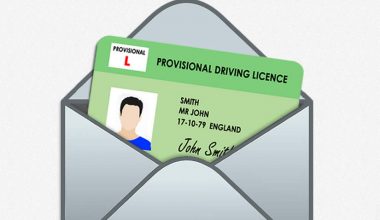The Coalition Application is a relatively new option in the college application process, offering a different approach to applying to multiple schools.
It has features like the Locker which allows students to store and organize their application materials and the aim for this is to make the college application process more streamlined and accessible.
If you are considering using the Coalition Application, it’s important to understand how it works and the potential benefits and drawbacks. In this article, we will explore the ins and outs of the Coalition Application to help you make an informed decision about whether it’s the right choice for you.
Table of contents
What Is The Coalition Application?
The Coalition Application, also known as the Coalition for Access, Affordability, and Success, is a college application system designed to streamline the application process for multiple colleges. When a college accepts the Coalition App, applicants can utilize the online Coalition Application to apply to that institution.
Unlike the traditional method of filling out separate applications for each college. The Coalition App allows applicants to input basic information such as address, grades, and classes only once.
This information is then automatically populated for each school they are applying to. This saves valuable time and simplifies the college application process. While colleges may still require additional supplements like personal statements, the Coalition App helps minimize redundant data entry.
The Coalition Application is free to use. However, applicants may still be required to pay application fees for the individual colleges they are applying to.
Although the Coalition App was introduced relatively recently in 2016, it is less widely known and utilized compared to the Common Application, another popular college application system.
Approximately 150 schools, including prestigious institutions such as Texas A&M, Clemson University, the University of Michigan, Harvard, and Yale, currently accept the Coalition Application.
One of the key advantages of the Coalition Application is its commitment to supporting “lower-income, under-resourced, and/or first-generation students,” making it an appealing option for applicants from diverse backgrounds.
Check Out: 10 Best Art Education Colleges 2024 for Students & Teachers
For colleges to use the Coalition Application, they must:
- Be open to students of different cultural, socio-economic, and geographic backgrounds
- Have low or no-debt financial aid, meet a full demonstrated need, or offer in-state tuition
- Have high graduation rates (for low-income and under-represented students as well as overall)
When considering college applications, it is essential to understand the benefits and differences between the Coalition College Application and the Common Application. Both platforms allow students to complete a single standardized application for multiple universities, simplifying the process.
The Coalition Application has a distinctive focus on supporting students from lower-income backgrounds. It aims to make college more affordable and reduce the burden of student debt.
Additionally, schools that use the Coalition App often provide strong financial aid packages to assist students.
In contrast, the Common Application is more widely recognized and utilized. It offers a streamlined application process for a vast number of colleges and universities. It provides a comprehensive platform for submitting college essays, letters of recommendation, and standardized test scores.
To determine which application to use when applying for college, it is advisable to consider the specific requirements and preferences of the institutions you are interested in. Some colleges may exclusively accept one application type, while others may accept both. Researching the admission criteria and application options of your target schools will help you make an informed decision.
Additionally, seeking guidance from college counselors, teachers, or mentors can provide valuable insights and recommendations based on your circumstances and goals.
They can assist in assessing which application platform aligns best with your needs and maximize your chances of a successful college application.
Ultimately, the choice between the Coalition App and the Common App should be based on careful consideration of your specific circumstances, target schools, and the resources and support each application offers.
What Are the Coalition App and Common App?
The Common Application, also known as the Common App, and the Coalition Application, also known as the Coalition App, serve as valuable tools for students to streamline the application process when applying to multiple colleges. These platforms provide a centralized system for tracking, filling, and submitting applications to various institutions.
Using either the Common App or the Coalition App is free of charge. However, it is important to note that application fees may still be required by the individual colleges.
One common requirement among both application platforms is the submission of an essay. Applicants are typically prompted to write an essay in response to a predetermined question or topic.
This essay serves as a crucial component of the application and provides an opportunity for students to showcase their unique perspectives, experiences, and aspirations. It is important to carefully adhere to the essay guidelines and prompts provided by each application platform.
Some universities have additional essay requirements or short-answer questions alongside the main essay for the Coalition App or Common App.
These additional essays or short answers allow colleges to gain further insight into the applicant’s background, interests, and suitability for their programs.
It is essential for students to thoroughly review the application requirements of each college they are applying to, as specific essay prompts and supplemental materials may vary.
By being diligent and attentive to these requirements, students can effectively navigate the application process and present themselves in the best possible light to their chosen colleges.
Related: 20 Easiest Jobs to Get After College without a Degree
5 Key Differences Between the Common App and Coalition App
While the Common App and Coalition App share several similarities, the two platforms also feature key differences that applicants should consider before deciding which to use.
1. Number of Participating Colleges
The 1975-founded Common App is utilized by more than 900 universities in the United States. Compared to the Common App, the Coalition App, which was established in 2015, has partnerships with more than 150 colleges. Nevertheless, as time passes, more schools start to accept the Coalition App.
2. Application Features
Students can save their information from year to year via the Common App’s rollover function, giving themselves more time to apply if necessary. Students can keep documents including essays, videos, and projects that may be helpful for the application process using the “Locker” function of the Coalition App.
3. Platform Familiarity
In general, teachers and guidance counselors who assist students with their college applications are more familiar with the Common App than they are with the Coalition App. This is merely a result of the Common App’s longer existence than its rival, giving counselors more opportunities to become acquainted with it.
However, more educators and guidance counselors will probably learn how to use the Coalition App as it gets popular.
4. Emphasis on Students From Historically Underrepresented Groups
The Coalition App was developed to make the college application process simpler for students from underrepresented groups. Particularly, the platform exclusively collaborates with institutions that provide extensive financial aid, affordable tuition, and debt-free graduation for students.
Additionally, children can ask family members, professors, and counselors to read and review their application papers for the Coalition App in the “collaboration space” and offer support and encouragement. Additionally, students may request application fee exemptions.
5. Level of Technical Support
The Common App frequently experiences high traffic around deadlines due to its annual user base of around 3 million. This implies that when students need technical support the most, it cannot be easily available. Because The Coalition App has fewer users, there might be more tech assistance on hand to respond to inquiries as they arise.
In any event, students should aim to begin the college application process as soon as possible to avoid potential bottlenecks.
Common App vs. Coalition App: Which Do Colleges Prefer?
Universities that accept both the Common App and the Coalition App do not show a preference for one over the other. Instead, they offer multiple application options to accommodate the diverse preferences and circumstances of applicants. Students should select the application platform that aligns best with their individual needs and preferences.
Some colleges exclusively accept the Common App due to its longer-standing presence in the college application landscape and its compatibility with their existing application systems.
Moreover, the Common App enjoys broader familiarity among teachers and counselors. This facilitates easier access to support and guidance for students who may require assistance during the application process.
Ultimately, the choice between the Common App and the Coalition App should be based on the student.
It is important for students to research and understand the application preferences of their target colleges to ensure a smooth and successful application experience.
By considering their own needs and the available resources, students can make an informed decision that best serves their interests and enhances their chances of a successful college application.
Also Read: Can a High School Dropout Go to College: Easy Guide to Start Afresh
Common App vs. Coalition App: Which Should You Use?
Applying to multiple colleges is a common practice among students, and the choice between the Common App and the Coalition App should be based on the specific colleges on a student’s application list. If all the colleges that a student intends to apply to are available on the Common App but not on the Coalition App, it would be more practical to choose the Common App.
Similarly, if the colleges on the student’s list appear on the Coalition App but not on the Common App, opting for the Coalition App would be more appropriate. Students need to prioritize the app that provides them with the best access to their desired schools.
However, apart from the college availability factor, other aspects of the application platforms may influence the decision-making process. The Coalition App places a particular emphasis on supporting students from underrepresented groups.
As a result, it may offer specific features and resources that cater to the needs and interests of these students, making it more appealing and user-friendly. Students from underrepresented backgrounds may find the Coalition App to be a valuable platform that provides additional support and opportunities.
In summary, while college availability is a significant factor in choosing between the Common App and the Coalition App, students should also consider the unique features and support systems offered by each platform. By taking these factors into account, students can make an informed decision and select the application platform that aligns best with their goals, priorities, and circumstances.
How Can You Sign Up for the Coalition Application?
Setting up a Coalition Application account is a straightforward process. You will need to visit the Coalition App website and proceed to create a username using your email address, along with a password for your account. This will grant you access to the comprehensive “Coalition Locker and Application Service” provided by the platform.
Following that, you will be required to complete some basic demographic questions and indicate your interest in a few schools. It is important to note that this selection does not imply that you are applying to those particular schools; it simply serves to familiarize you with the various application formats available. Once this step is completed, you will have full access to the entire Coalition App website and its resources.
While it is possible to create a Coalition Application account as early as the 9th grade to utilize the “Locker” feature for storing relevant items, please bear in mind that you will only be able to officially apply to colleges during the fall of your senior year.
Tips for Using the Coalition Application
To get the most out of the Coalition App, follow these four tips throughout your college application process.
#1. Know Which Schools Use It, and Which Don’t
There is a considerable likelihood that some of the colleges you are applying to do not accept the Coalition Application, as it is currently limited to approximately 150 colleges. In such cases, you will need to explore alternative application systems, such as the Common App, or apply to those specific schools individually.
While this may add some logistical complexity to the process, staying organized can help you navigate through it smoothly. Once you have finalized your list of target schools, create a comprehensive record outlining the application method and essential deadlines for each institution.
Keep this list in a visible place to ensure that you do not overlook any deadlines for schools not utilizing the Coalition App. With proper organization and awareness, you can successfully manage the application process across multiple platforms.
#2: Use Your Locker to Organize Information
The Coalition Application offers a unique feature called the locker, which proves invaluable in organizing documents and additional materials for college applications. However, the advantages of the locker extend beyond the application process itself. Starting as early as 9th grade, students can create a Coalition Application account and utilize the locker to store various items.
This includes organizing high school progress and keeping track of achievements, even if the student decides not to use the Coalition App for college applications.
The locker serves as a valuable resource beyond the college admissions journey. It can be accessed in the future when creating a professional resume for job applications or applying for scholarships.
By maintaining an organized and comprehensive record of accomplishments, the locker becomes a convenient tool for students to showcase their strengths and experiences in various future endeavors.
#3: Choose Your Essay Wisely
The essay component of the Coalition Application holds significant importance, as most schools will expect you to complete it. While there is no specified word limit, it is recommended to aim for approximately 500-550 words.
Within the application, you will find five prompts to choose from, but only one needs to be answered. Each prompt presents an opportunity to showcase different aspects of your personality to colleges, so it is crucial to select the prompt that best aligns with your strengths and experiences.
Regardless of the prompt you choose, it is vital to approach it in a manner that portrays you in a positive light. Your essay should highlight how you will contribute to the school through your intellect, interests, and character.
Use this platform to demonstrate your unique qualities, passions, and potential impact as a valued member of the college community. Thoughtfully crafting your essay will allow admissions officers to gain a deeper understanding of who you are and the valuable contributions you can make to their institution.
#4: Remember Supplements
In addition to the Profile section of the Coalition Application, it’s important to note that many schools will require applicants to complete a supplement. Failing to submit these supplements will render your application incomplete and ineligible for consideration.
These supplements often consist of personal statements or essays that require careful thought and attention. It is crucial to manage your time effectively and avoid leaving these tasks until the last minute.
If you encounter a supplemental essay that asks you to articulate your interest in a specific school, we have a wealth of guidance available in our “Why this college” essay article.
This resource can provide valuable insights and strategies to help you craft a compelling essay that showcases your genuine enthusiasm and aligns your goals with the institution’s offerings. Taking the time to approach these supplemental essays thoughtfully and diligently will enhance your chances of making a strong impression on admissions committees.
Read: Are Candles Allowed In Dorms? Best Candle Alternatives In 2024
Frequently Asked Questions About the Coalition vs. Common App
Yes, students may use both the Common App and the Coalition App to apply for college at the same time. However, colleges only accept one application per student. While both the Common App and the Coalition App allow students to sign up for free, students must still pay all application fees associated with the universities they apply to through the application platform.
The Coalition App isn’t easier than the Common App — students must still meet all application requirements from their colleges of choice — but it does offer features that may help students from underrepresented groups navigate the college admissions process. Students should examine the features of both the Common App and the Coalition App to determine for themselves which application platform best meets their needs. Students can sign up for these platforms at any point during their high school career for free.
The Coalition App partners with over 150 colleges across the country. Students may apply to any of the schools that have partnered with the application platform, as long as they meet the application requirements set forth by the school. The Coalition App continues to add more partner schools, giving students increased access to different colleges. Additionally, all schools that partner with the Coalition App graduate students with little or no debt.
Conclusion
The Coalition Application provides students with a valuable tool for streamlining the college application process. With its user-friendly platform and emphasis on supporting underrepresented students, the Coalition App offers an alternative option to the Common App.
By allowing students to apply to multiple colleges and providing access to helpful resources such as the “Collaboration Space” and application fee waivers, the Coalition App aims to make higher education more accessible and affordable.
While the Coalition App currently partners with a smaller number of colleges compared to the Common App, its acceptance continues to grow over time. It offers students the opportunity to showcase their strengths, achievements, and aspirations through a standardized application process.
Ultimately, whether students choose the Coalition App or the Common App should depend on the specific colleges they are applying to and their individual circumstances.
References
- www.bestcolleges.com – Common App vs. Coalition App: Which Should You Use?
- blog.prepscholar.com – The Complete Guide to the Coalition Application





